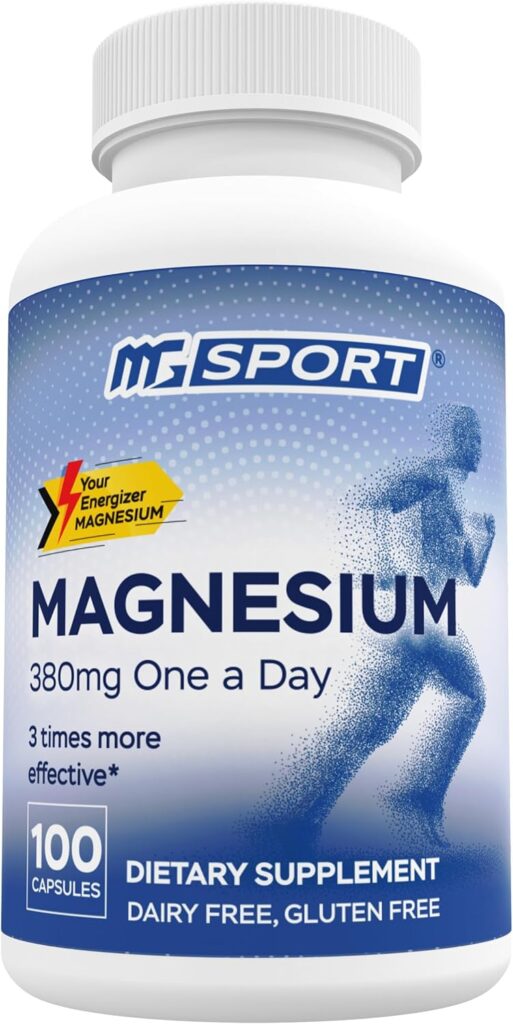Gastroesophageal reflux disease (GERD) is more than just occasional heartburn; it’s a chronic condition that can disrupt daily life and lead to serious complications if left untreated.
Understanding what causes GERD and how to manage it effectively is crucial for those affected.
In this blog, we will explore five practical ways to support and manage GERD, starting with what GERD is.
Let’s dive in!
What Is GERD?
Gastroesophageal reflux disease (GERD) is a chronic digestive disorder that occurs when stomach acid or, occasionally, bile flows back into the food pipe (esophagus).
This backwash (reflux) irritates the lining of your esophagus and causes GERD.
This condition can lead to uncomfortable symptoms like heartburn, regurgitation, and sometimes even difficulty swallowing.
Understanding GERD and how to manage it can significantly improve your quality of life.
5 Ways to Support GERD
1. Magnesium Oxide
Magnesium oxide is a popular form of magnesium that can help support GERD symptoms effectively.
It works by neutralizing stomach acid, which can reduce feelings of heartburn and acid reflux.
This supplement can also help improve intestinal motility, helping the stomach empty faster and reducing the risk of acid build-up.
Out of all of the magnesium oxide supplements I’ve tried, MGSPORT’s Magnesium Complex is my personal favorite.
MGSPORT’s Magnesium Complex is exceptionally beneficial for managing GERD symptoms due to its high absorption rate and vitamin-enhanced formula.
With added vitamins B6, D, and E, this supplement ensures better magnesium uptake, which can help neutralize stomach acid and relieve discomfort associated with GERD.
Clinically tested for efficacy, MGSPORT provides a potent dose of magnesium in a single capsule that has been shown to have three times higher intercellular absorption than magnesium citrate, making it a reliable choice for those seeking to manage digestive health effectively.
Simply take one capsule a day and you’re good to go!
2. Modify Your Diet
Certain foods and beverages can trigger GERD symptoms.
Common culprits include spicy foods, fatty foods, chocolate, caffeine, onions, peppermint, carbonated beverages, and citrus fruits.
Keeping a food diary can help you identify specific triggers.
Once identified, try to avoid or limit these foods to manage your symptoms better.
Additionally, eating smaller, more frequent meals can prevent the stomach from becoming too full and pushing acid into the esophagus.
3. Maintain a Healthy Weight
Excess weight, especially in the abdominal area, can put pressure on your stomach and lower esophageal sphincter (LES), potentially worsening GERD symptoms.
Losing weight can reduce this pressure and help the LES function more effectively, preventing reflux.
Speak with a healthcare provider or nutritionist to design a weight loss strategy that is safe and effective for you.
4. Avoid Lying Down After Eating
Lying down immediately after meals can exacerbate GERD symptoms because it makes it easier for stomach acid to flow back into the esophagus.
Try to stay upright for at least three hours after eating.
If symptoms strike at night, consider elevating the head of your bed by a few inches to keep acid in the stomach while you sleep.
5. Quit Smoking and Limit Alcohol Consumption
Smoking can weaken the LES, the valve that keeps stomach acid from rising into the esophagus, and alcohol can increase stomach acid production.
Both habits can exacerbate GERD symptoms.
Quitting smoking and reducing alcohol intake can significantly reduce GERD symptoms, improve overall health, and decrease the risk of developing complications from GERD, such as esophageal cancer.
Supporting GERD
Supporting GERD involves lifestyle changes and, in some cases, medication.
By implementing these five strategies, you can significantly alleviate GERD symptoms and improve your digestive health.
Always consult with a healthcare professional before starting any new treatment or supplement, especially if you have chronic health conditions or are taking other medications.
Thank you for reading!
Affiliate Disclosure
Some of the links on this site are affiliate links. This means that if you click on the link and purchase the item, we may receive an affiliate commission at no extra cost to you. I only recommend products or services that I believe will add value to my readers, however some (not all) do pay us to be on this blog. Your support and theirs helps keep this blog running, and I genuinely appreciate it.
Medical Disclaimer
The information provided on this website is for educational purposes only and is not intended as medical advice. This blog or the writer is not a licensed healthcare professional, and the content should not be used as a substitute for professional medical diagnosis, treatment, or advice. Always consult with your physician or other qualified healthcare provider before starting any new treatment or making any changes to your healthcare routine.
